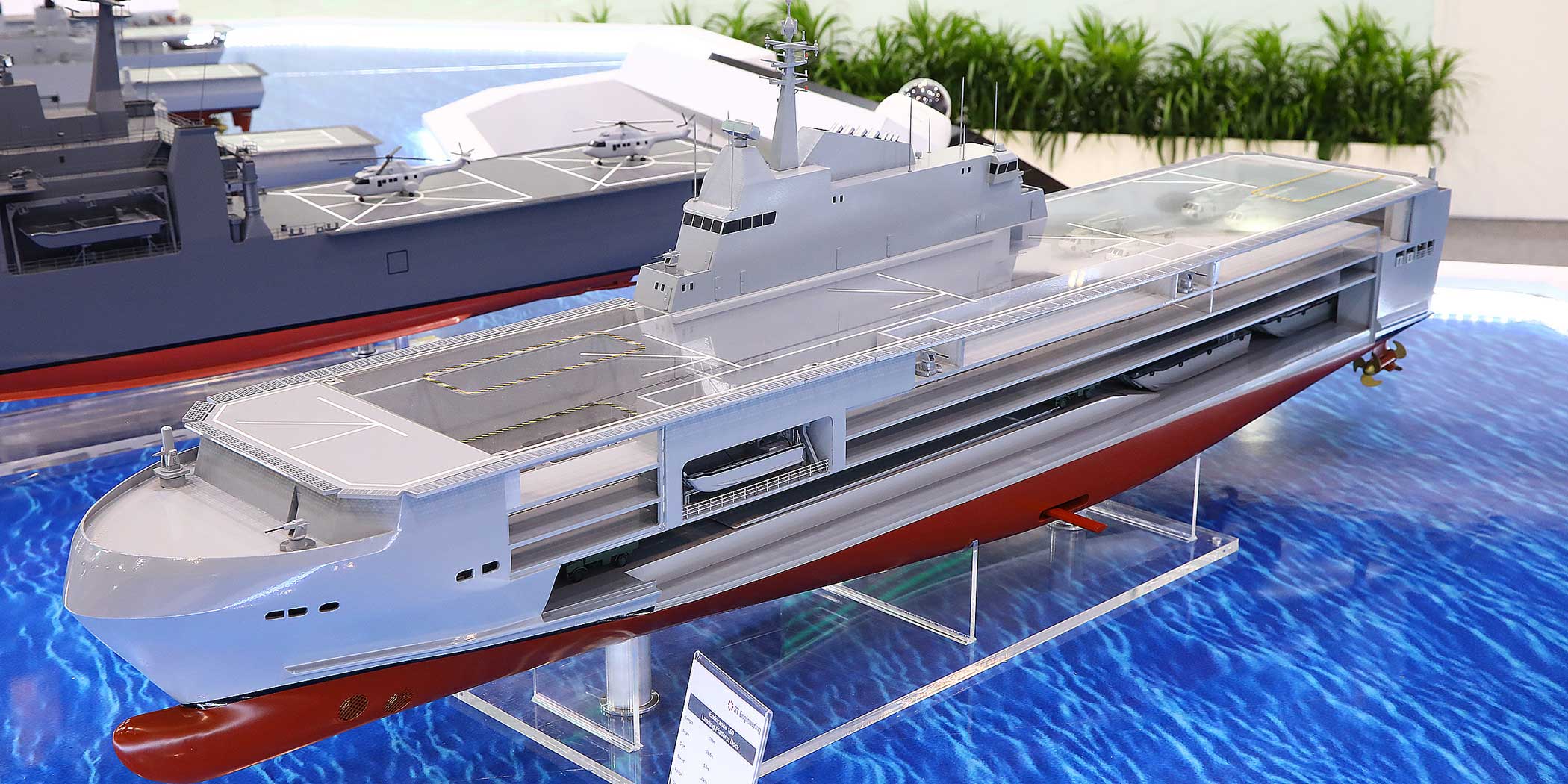Click Here to View This Page on Production Frontend
Click Here to Export Node Content
Click Here to View Printer-Friendly Version (Raw Backend)
Note: front-end display has links to styled print versions.
Content Node ID: 400650
It is doubly unfortunate that Lockheed Martin has pulled out of the Singapore Airshow. There would undoubtedly have been some celebrations within its smart and prominent chalet, to mark the recent and significant milestone in Singapore’s quest to acquire F-35 stealth fighters. Instead, the chalet is locked, and the full-scale model that is usually on show outside lay unassembled nearby in four large shipping containers until just before the show opened.
Singapore joined the F-35 program in 2003, paying to become a Security Cooperation Participant. This enabled it to receive detailed program status and classified performance information. But it was not until March last year that Defence Minister Dr. Ng Eng Hen announced that it would purchase four jets “for evaluation,” with an option for eight more. A letter of interest followed, and the purchase moved forward last month when the Pentagon sent the formal notification of the proposed sale to Congress.
The notification confirmed for the first time that the Republic of Singapore Air Force (RSAF) had requested the F-35B Short Take-Off and Vertical Landing (STOVL) version. The STOVL capability has a particular attraction for small Singapore, because its four airbases are vulnerable to attack if the neighbors should turn unfriendly. The RSAF regularly practices dispersed fighter operations from emergency runways; most showgoers will have traveled to here along one, on the East Coast Parkway.

But the F-35B was also designed for operation from small aircraft carriers, such as U.S. Marine Corps (USMC) amphibious assault ships. Some commentators have speculated that Singapore might want to operate F-35s from the Joint Multi-Mission Ship (JMMS) flat-top that has been on the drawing board here for some years. However, as currently conceived by the marine division of ST Engineering, the JMMS (also labeled the Endurance 160 Landing Platform Dock or LPD) accommodates only helicopters. ST’s chief marketing officer Chew Men Leong told AIN that the design could change, but “we are waiting for the Ministry of Defence to issue a firm requirement.”
However, it is entirely possible that the RSAF will have some or all of its F-35 pilots trained for carrier operations. They will most likely undertake flight training at the USMC air station Beaufort, South Carolina, where all prospective F-35B pilots go. They might then practice such operations closer to home because the USMC’s assault ships sometimes visit Singapore.
The notification to Congress estimated the total procurement cost at $2.75 billion. That includes all 12 jets as well as the substantial package required to acquire the sophisticated fifth-generation capability. The sale will include 13 Pratt & Whitney F135 engines; weapons employment capability; the fighter’s command, control, communication, computers, and intelligence/communication, navigation, and identification (C4I/CNI) system; spare and repair parts; support and test equipment; training; the autonomic logistics information system (ALIS); and U.S. government and contractor support services.
Defence Minister Ng said last March that the unit price of an F-35 was similar to that of Singapore’s F-15SG Strike Eagles. And the total cost of ownership, including through-life maintenance, was close to that for the Boeing jet, he added.
One interesting aspect of this sale is the extent to which Singapore might be allowed to modify and support the jets to its own requirements. The U.S. government allowed the RSAF to add an Israeli mission computer and electronic warfare system to its F-16s. It also allowed the RSAF to write its own operational flight programs (OFPs).
The notification states that “electronic warfare systems” are included in the sale, plus access to the “reprogramming center.” As a Security Cooperation Participant already, the RSAF will be aware of some problems that have arisen with the F-35 OFPs, such as a failure to synchronize those in the jets with those in the simulators. There have also been delays in updating the mission data files, a library of enemy threats to the aircraft that feed into the fighter’s advanced sensor recognition and data fusion capability.
Israel has been allowed to add some unique avionics and electronic warfare systems to its F-35s. A source in the U.S. with access to the program told AIN that it was possible that Singapore would be allowed similar privileges.